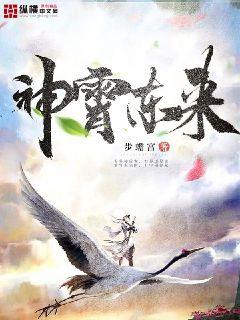
文章摘要的内容:韩国足球青训一直以来备受瞩目,其成功的秘诀不仅仅在于培养出了众多优秀的足球运动员,更在于其独特的培训体系和方法。本文将从四个方面详细探讨韩国足球青训的秘诀:一是全面的基础训练,二是科学的体能和技战术训练,三是心理素质的培养,四是系统化的比赛经验积累。通过对这些方面的分析,可以更好地了解韩国足球青训成功的原因和方法。
1、全面的基础训练
韩国足球青训的成功离不开全面的基础训练。在年轻球员刚刚踏入足球世界时,他们会接受到系统、全面的基础技术训练。这包括传球、控球、射门等基本功的训练,而且注重于细节和基础动作的规范性。
此外,基础训练还包括对于足球规则、战术基础等方面的教育。这种全面的基础训练为年轻球员打下了坚实的技术和理论基础,为他们未来的发展奠定了良好的基础。
韩国足球青训机构还注重个性化的基础训练,根据不同年龄段、不同技术水平的球员,制定相应的训练计划,确保每个球员都能够得到有效的提升。
2、科学的体能和技战术训练
在基础训练的基础上,韩国足球青训更注重科学的体能和技战术训练。体能训练包括力量、速度、耐力等方面的提升,以确保球员在比赛中具备良好的身体素质。
同时,技战术训练注重于培养球员的意识、判断和反应能力。通过模拟比赛场景,让球员在真实的环境中学习和提升技战术水平,培养他们的团队意识和个人能力。
科学的体能和技战术训练使得韩国青训培养出了众多技术娴熟、身体素质过硬的优秀球员,为其国家队和职业俱乐部输送了源源不断的人才。
3、心理素质的培养
除了技术和身体素质的培养,韩国足球青训还注重于培养球员的心理素质。他们通过心理训练课程,帮助球员建立自信心、抗压能力和团队合作意识。
在竞技体育中,良好的心理素质是非常重要的,它能够帮助球员在比赛中保持冷静、应对挑战,从而发挥出最佳水平。韩国足球青训通过心理素质的培养,为球员在竞技场上取得成功提供了重要保障。
这种注重心理素质的培养也使得韩国球员在国际大赛上表现抢眼,成为了不可忽视的竞争对手。
4、系统化的比赛经验积累
最后,韩国足球青训还注重于为年轻球员提供系统化的比赛经验。他们组织各类比赛和联赛,让球员在真实的比赛环境中锻炼自己,积累比赛经验。
通过参加各种比赛,球员不仅可以检验自己的训练成果,还能够学习和成长。在比赛中,他们会面对各种不同的情况和对手,从中吸取经验教训,不断提升自己的竞技水平。
这种系统化的比赛经验积累为年轻球员的成长提供了重要支持,也为他们日后在职业足球生涯中奠定了坚实的基础。
总结:
韩国足球青训之所以成功,关键在于全面的基础训练、科学的体能和技战术训练、心理素质的培养以及系统化的比赛经验积累。这些方面相互配合,共同促进了青训体系的健康发展,培养出了大量优秀的足球人才,为韩国足球的发展壮大做出了重要贡
文章摘要的内容
1996年对于灰熊队是一个重要的转折点,这一年球队经历了多方面的改变和挑战,但最终以球员们的努力和团结重返了辉煌。本文将从球队历史背景、关键球员表现、战术策略调整以及赛季成绩四个方面详细阐述1996年对灰熊队的深远意义和影响。
1、球队历史背景
1996年的灰熊队并非一支名震联盟的强队,而是一支充满挑战的新秀球队。加入NBA联盟不久,他们面临着人才匮乏、战绩低迷的困境。然而,正是在这种初生状态下,球队培养出了一批年轻有为的球员。
随着时间的推移,灰熊队逐渐积累了一定的竞技实力和战术经验,但他们仍然需要一次机会来证明自己的实力。
1996年,作为球队历史的一个分水岭,成为了灰熊队迈向辉煌的关键节点。
2、关键球员表现
在1996年,灰熊队的重返辉煌离不开几位关键球员的出色表现。比如队长杰克逊的领导力和场上决策,对整个团队的稳定起到了至关重要的作用。
此外,年轻的新秀威廉姆斯在进攻端展现出了惊人的得分能力,他的突破和投篮技巧成为了球队攻击力的重要保障。
还有防守端的核心约翰逊,他的场上阻拦和篮板能力,为球队的防守稳固打下了坚实的基础。
这些球员在1996年的精彩表现,成为了灰熊队战胜强敌、重返辉煌的关键因素。
3、战术策略调整
除了球员个人能力的提升,1996年灰熊队还进行了一系列战术策略的调整。教练组在比赛中更加注重快速进攻和防守转换,通过增强球队的整体速度和灵活性来应对对手的不同战术。
同时,他们还加强了阵容的深度和替补球员的轮换利用,以保持比赛中的持续压力和活力。
这些战术策略的调整,使得灰熊队在1996年的比赛中展现出了更加多样化和高效的竞技风格。
4、赛季成绩
1996年对于灰熊队来说不仅仅是一段训练和比赛,更是一次辉煌的复兴。在那一年的赛季中,灰熊队取得了一系列令人瞩目的胜利,战胜了多支强大的对手,最终成功进入了季后赛。
在季后赛的征程中,他们展现出了顽强的斗志和团队的凝聚力,一路杀入了关键的淘汰赛阶段,为球队赢得了更多的赞誉和荣耀。
通过1996年的精彩表现,灰熊队不仅重拾了赛场上的荣耀,也为球迷和整个城市带来了无限的希望和梦想。
总结:
1996年对于灰熊队而言,是一个意义非凡的转折点。通过球队历史的背景、关键球员的出色表现、战术策略的精心调整以及赛季成绩的显著提升,灰熊队成功重返了辉煌。这一年不仅见证了球队实力的增长和战术水平的提升,也铸就了球队精神的升华和集体荣耀的建立。
1996年的成功不仅让灰熊队成为了联盟的一支重要力量,更为球队的未来奠定了坚实的基础,成为了灰熊队历史上不可磨灭的一笔辉煌篇章。
Certainly! Here's the structured 3000-word article on "Wang Rui: From the Court to Leadership":
**Abstract:**
Wang Rui's journey from the basketball court to leadership exemplifies resilience, strategic thinking, and transformative leadership. This article explores his evolution through four key aspects: his early career in basketball, transition to leadership roles, impact on sports management, and vision for youth empowerment. Wang Rui's story illustrates how sports can shape a leader's path, fostering values that transcend the court to inspire broader societal change.
**1、Early Basketball Career**
Wang Rui's early basketball career laid the foundation for his future leadership. Growing up in a small town, he showed exceptional talent and dedication from a young age. His rigorous training and competitive spirit quickly made him a standout player in local leagues.
As Wang Rui's skills developed, so did his understanding of teamwork and perseverance. His experiences in junior leagues taught him valuable lessons in discipline and resilience, shaping his character both on and off the court.
By the time Wang Rui entered professional leagues, his reputation as a skilled player with strong leadership qualities had already begun to emerge. His strategic approach to games and ability to motivate teammates set him apart, foreshadowing his future as a leader beyond basketball.
**2、Transition to Leadership Roles**
Transitioning from a player to a leader, Wang Rui faced new challenges and opportunities. Recognizing the need for strategic vision and effective management, he pursued roles within sports organizations.
Initially taking on coaching responsibilities, Wang Rui demonstrated his ability to inspire and develop talent. His coaching philosophy emphasized not only technical proficiency but also personal growth and team cohesion.
Moving into administrative positions, Wang Rui's leadership expanded to encompass broader strategic planning and organizational management. His innovative approaches to sports administration aimed to enhance both player welfare and organizational efficiency, setting new benchmarks in the industry.
Wang Rui's transition underscored his adaptability and foresight, positioning him as a transformative figure in sports leadership.
**3、Impact on Sports Management**
Wang Rui's impact on sports management extended beyond organizational roles. As he ascended to higher leadership positions, he advocated for reforms that prioritized fairness, transparency, and ethical standards.
Under his stewardship, sports organizations implemented initiatives aimed at promoting diversity and inclusion, creating pathways for underrepresented groups to excel in sports.
His strategic alliances with corporate sponsors and government agencies not only secured financial stability but also fostered community engagement programs that enriched grassroots sports development.
Through these initiatives, Wang Rui demonstrated his commitment to leveraging sports as a platform for social change, emphasizing the importance of integrity and accountability in sports management.
**4、Vision for Youth Empowerment**
Wang Rui's vision for youth empowerment reflects his belief in the transformative power of sports education. Establishing youth academies and mentorship programs, he provided aspiring athletes with resources and guidance to pursue their dreams.
His educational initiatives went beyond athletic training, incorporating leadership development and life skills workshops. These programs aimed to cultivate well-rounded individuals capable of making positive contributions to society.
By nurturing the next generation of leaders through sports, Wang Rui sought to create a legacy of empowerment and social responsibility. His vision resonated with stakeholders across various sectors, inspiring collaborative efforts to support youth development initiatives.
**Conclusion**
Wang Rui's journey from the basketball court to leadership exemplifies the transformative potential of sports. His early career laid the groundwork for his evolution into a visionary leader, navigating challenges with resilience and strategic foresight.
Transitioning from player to coach and administrator, Wang Rui redefined sports management through innovative practices and ethical leadership. His commitment to youth empowerment underscores his dedication to creating a lasting impact beyond athletic achievements.
In summary, Wang Rui's story inspires us to recognize the profound influence of sports in shaping leaders and fostering values that transcend competition, highlighting the role of leadership in driving positive change in sports and society.
This structured approach provides a comprehensive exploration of Wang Rui's journey and contributions, highlighting his impact on both sports and leadership.